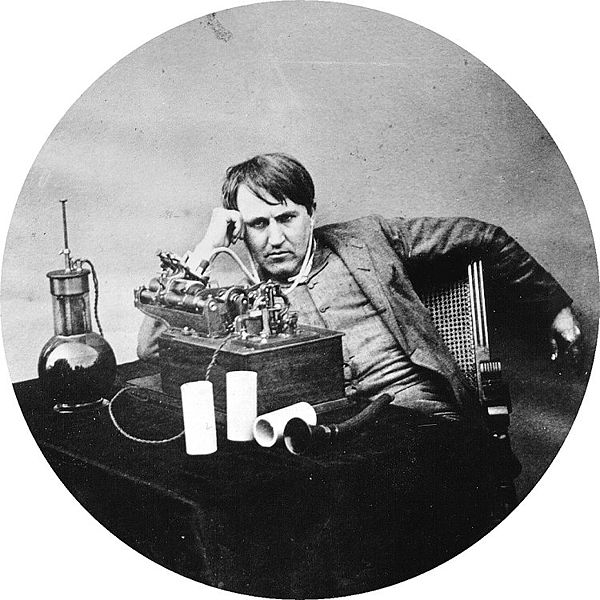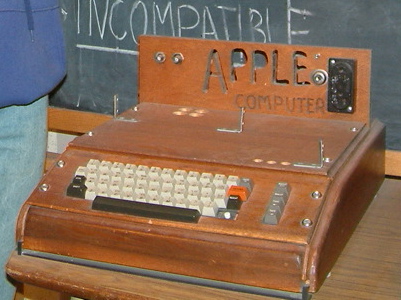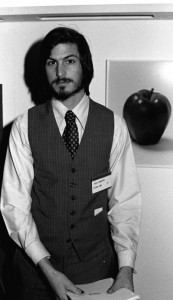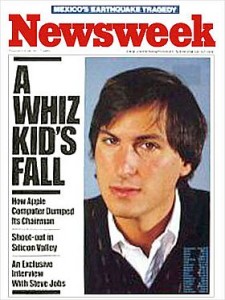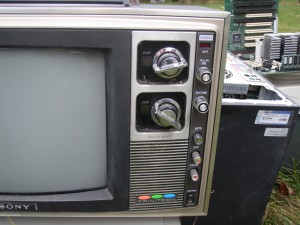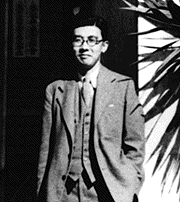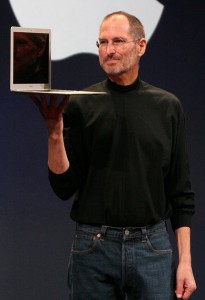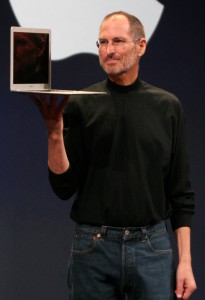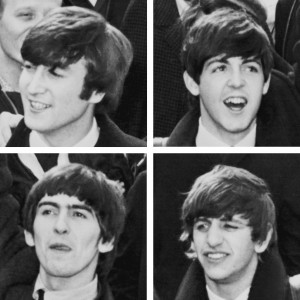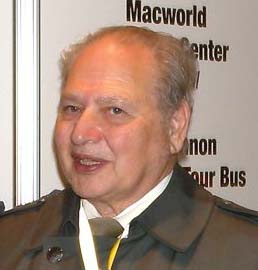From 1978.
You are currently browsing articles tagged Steve Jobs.
Tags: Steve Jobs
At the American, Vaclav Smil argues that Steve Jobs shouldn’t be compared to Thomas Edison. An excerpt:
“I have no desire to disparage or dismiss anything Jobs has done for his company, for its stockholders, or for millions of people who are incurably addicted to incessantly checking their tiny Apple phones or washing their brains with endless streams of music—I just want to explain why Jobs is no Edison.
Any student of the history of technical progress must be struck by the difference between the epochal, first-order innovations that take place only infrequently and at unpredictable times and the myriad of subsequent second-order inventions, improvements, and perfections that could not have taken place without such a breakthrough and that both accompany and follow (sometimes with great rapidity, often rather tardily) the commercial maturation of that fundamental enabling advance. The oldest example of such a technical saltation was when our hominin ancestors began using stones to fashion other stones into sharp tools (axes, knives, and arrows). And there has been no more fundamental, epoch-making modern innovation than the large-scale commercial generation, transmission, distribution, and conversion of electricity.”
________________________
Edison talks:
Tags: Steve Jobs, Thomas Edison, Vaclav Smil
Gizmodo has a good post by Mat Honan which fleshes out what became obvious yesterday after Amazon’s dazzling Kindle Fire presentation: For the time being, Jeff Bezos will fill the void created by Steve Jobs stepping aside at Apple. Amazon has always been formidable, but a little blah. No more. An excerpt:
“And so when it was all over, the press, the great opinionator that drives purchasing decisions, was utterly flabbergasted. It was totally Jobsed, so to speak. Hypnotized and drawn in by the mind-blowing Bezos.
Much of that that is because of his passion. You can see it in his eyes, full of zeal and bordering on crazy. He isn’t just conning you, he believes in it. He feels strongly that he’s got the right product, at the right time. And so watch him and you will too.
And yet, it’s not just about his salesmanship. ‘Jeff Bezos is the new Ron Popeil‘ is a whole other story. He mirrors Apple’s former CEO in a host of other ways as well.
Most obviously, he’s a founder/CEO. Amazon is his. Yes, it’s a public company, but it goes where his vision takes it. It follows his mind into markets. Amazon is Jeff Bezos. Without him it would be adrift.”
••••••••••
“The instruction we find in books is like fire”:
Tags: Jeff Bezos, Mat Honan, Steve Jobs
From Aaron Saenz’s Singularity Hub post about Apple’s planned futuristic Cupertino offices, designed by Steve Jobs and scheduled to open in 2015: “Apple Campus 2, nicknamed ‘the Mothership,’ is set to break ground in 2012 and it looks simply stunning. Part flying saucer, part hadron super collider, part Dr. No’s lair, the Mothership will be a 2.8 million square foot facility located on a 175 acre lot off Highway 280 in Cupertino. Featuring a 1000 seat auditorium, 300,000 square feet of research space, and its own power plant, the new campus will house Apple and 12,000 in house employees in glorious style.”
Tags: Aaron Saenz, Steve Jobs
Steven Johnson, who wrote The Ghost Map, a fascinating account of amateur epidemiology in Victorian England, shares his recollections of the mind-altering, game-changing effect of the Macintosh computer, in the Wall Street Journal. An excerpt:
“But that first Macintosh did much more than expand my data storage needs. It also fundamentally changed my relationship to technology—and in doing that, ultimately changed the course of my life.
It’s hard to remember now, but in the mid-1980s—before Wired Magazine, Pixar, dot-com start-ups, celebrity tweeting—being obsessed with your computer had almost no cultural cachet. You were just a nerd, full stop. The computers of the day had all the playfulness of a tax audit, and the creative people who used them did so begrudgingly.
But one look at the Mac and you could tell something was different. The white screen alone seemed revolutionary, after years of reading green text on a black background. And there were typefaces! I had been obsessed with typography since my grade-school years; here was a computer that treated fonts as an art, not just a clump of pixels. The then-revolutionary graphic interface made the screen feel like a space you wanted to inhabit, to make your own. To paraphrase Le Corbusier, the Mac was a machine you wanted to live in.” (Thanks Browser.)
••••••••••
Steven Johnson revisits the cholera outbreak of 1854 during his TED Talk:
Tags: Steve Jobs, Steven Johnson
Sad if inevitable news that Steve Jobs is stepping down as CEO of Apple due to health concerns. I have major misgivings about the treatment of workers in Apple’s factories in Asia and the company’s light regard for consumer privacy, but Steve Jobs is one of the most singular Americans of his time. An artist as businessperson, a visionary who not only saw the future of tech but made it, Jobs brought big ideas to the marketplace and delivered on them, more often than not, sensationally. His latter stint at Apple was more spectacular than his first, giving lie to F. Scott Fitgerald’s famous line that there are no second acts in America, which is oft-quoted and has always been untrue. But never more so than in the case of Jobs.
More Steve Jobs posts:
- Jobs introduces the Macintosh. (1984)
Tags: Steve Jobs
Steve Jobs lets the Mac out of the bag in 1984.
Tags: Steve Jobs
Two excerpts from Steve Jobs’ 1985 Playboy interview, including one in which the Apple visionary predicts his leaving the company and returning to it even stronger, without realizing his departure would be involuntary.
••••••••••
“Playboy: Obviously you believe that computers are going to change our personal lives, but how could you persuade a skeptic? A holdout?
Steve Jobs: A computer is the most incredible tool we’ve ever seen. It can be a writing tool, a communications center, a supercalculator, a planner, a filer and an artistic instrument all in one, just by being given new instructions, or software, to work from. There are no other tools that have the power and the versatility of a computer. We have no idea how far it’s going to go. Right now, computers make our lives easier. They do work for us in fractions of a second that would take us hours. They increase the quality of life, some of that simply by automating drudgery and some of that by broadening our possibilities. As things progress, they’ll be doing more and more for us.”
••••••••••
“Jobs: I’ll always stay connected with Apple. I hope that throughout my life I’ll sort have the thread of my life and the thread of Apple weave in and out of each other like tapestry. There may be a few years when I’m not there, but I’ll always come back. And that’s what I may try to do. The key thing to remember about me is that I’m still a student. I’m still in boot camp. If anyone is reading any of my thoughts, I’d keep that in mind. Don’t take it all too seriously. If you want to live your life in a creative way, as an artist, you have to not look back too much. You have to be willing to take whatever you’ve done and whoever you were and throw it away, What are we anyway? Most of what we think we are is just a collection of likes and dislikes, habits, patterns. At the core of what we are is our values, and what decisions and actions we make reflect those values. That is why it’s hard doing interviews and being visible. As you are growing and changing, the more the outside world tries to reinforce an image of you that it thinks you are, the harder it is to continue to be an artist, which is why a lot of times artists have to go, ‘Bye, I have to go. I’m going crazy and I’m getting out of here.’ And they go and hibernate somewhere. Maybe later they re-emerge a little differently.”
••••••••••
Before Hodgman vs. Long, Dick Cavett was the Apple pitchman. From 1981:
Tags: Steve Jobs
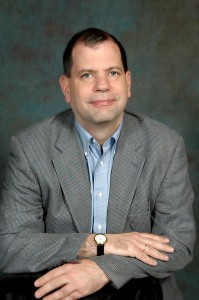
Tyler Cowen: "Maybe it is stretching the concept, but you can interpret Bill Gates and Steve Jobs as amateurs too."
An excerpt from a post by economist Tyler Cowen on Marginal Revolution about the merits of amateur efforts:
“Amateurism is splendid when amateurs actually can make contributions. A lot of the Industrial Revolution was driven by the inventions of so-called amateurs. One of the most revolutionary economic sectors today — social networking — has been led by amateurs. Maybe it is stretching the concept, but you can interpret Bill Gates and Steve Jobs as amateurs too.
Amateurs are associated with free entry and a lot of experimentation. Barbecue quality is very often driven by amateurs, and in general amateurs still make contributions to food and cooking. The difficulty of maintaining productive amateurs is one of the reasons why scientific progress periodically slows down. Specialization, however necessary it may be, can make big breakthroughs harder at some margin. This is one aspect of the division of labor which Adam Smith did not fully grasp, though he hinted at it.
Through computers, and the internet, the notion of amateurs working together is becoming more important. This includes astronomical searches and theorem-proving, plus collection and collation of data, and Wikipedia; this is Shirky’s ‘cognitive surplus.’”
Tags: Adam Smith, Bill Gates, Clay Shirky, Steve Jobs, Tyler Cowen
The black turtleneck had yet to be invented. (Thanks Reddit.)
Tags: Steve Jobs
Jeff Yang of the San Francisco Gate has written an article about how Steve Jobs Apple ethos was formed in large part because of his almost fetishistic devotion to former Sony CEO Masaru Ibuka. Ibuka didn’t worry about losing market share in the short run–he wanted, like Jobs subsequently would, to create transformative products and win the future. An excerpt:
“‘Ibuka was really the heart and soul of the company,’ says [Alan] Deutschman, who wrote about Sony’s elder statesman in his most recent book, Walk the Walk. ‘He was the one responsible for Sony’s sense of purpose. This was a company that was launched in a Tokyo that had been leveled by firebombing in World War II, that had experienced the kind of destruction associated with Hiroshima and Nagasaki, and whose residents were facing homelessness, hunger and desperation. And yet Ibuka laid out a mission statement for Sony that was aimed at changing the world.’
That statement was simple and to the point: ‘Sony will be the company that is most known for transforming the global image of Japanese goods as being of poor quality.’ It defined Sony by what it would not do — make bad products — making it something of an omission statement, if you will.
By way of example, Deutschman tells the story of how Sony entered the color TV marketplace, noting that in the Sixties, when color TV was going from 3% to 25% of the market, Sony was one of the few electronics companies that didn’t sell a color model. ‘People were telling Ibuka, ‘You have to come in to this market, everyone will take your market share,’ says Deutschman. ‘And Ibuka refused, saying, ‘No, we will only do great products. We will only do high quality goods. We will only do breakthrough technology.”
As a result, the company found itself in a precarious financial situation, losing out to its primary rivals — until it came upon the aperture-grille technology that Sony unveiled in 1966 as the core of the Trinitron TV. A full 25% brighter than its rivals, Trinitron became the best-selling color TV for the next quarter century.
‘At the time, Sony was committed to not releasing a crappy product just because the market was there; they waited until they had a truly revolutionary innovation, combined it with great design and then profited from it for long, long time,’ says Deutschman. ‘For decades, Sony was a perfect place for engineers to fully use their creativity, because it was focused on bringing real meaning and benefit to society by making great products.'”
Tags: Alan Deutschman, Jeff Yang, Masaru Ibuka, Steve Jobs
It seems the surest way to announce that your company, products and employees lack genius is to rely heavily on market research and focus groups. What you’re basically saying is that you know you can’t be ahead of the curve so you’d like someone else to help you just keep up. When Steve Jobs was working on the iPad and wanted to rely on touch screens rather than a stylus, his judgement was questioned, particularly because he didn’t do any market research. His response was: “It isn’t the consumers’ job to know what they want,” realizing on his own that moving from mouse to stylus wasn’t a bold step into the future. And I think most great things have been created by one or two people who just knew. There aren’t enough of those people to go around, so we get focus groups instead. (George Lois agrees with me.)
Jobs obviously wasn’t the first one attempt popularizing touch-screen. In the 1983 edition of Computer Chronicles below, Hewlett-Packard reps share their own touch-screen technology. I wonder what market research said about it back then. By the way: The younger host on your right is Gary Kildall.
Tags: Gary KIldall, Steve Jobs
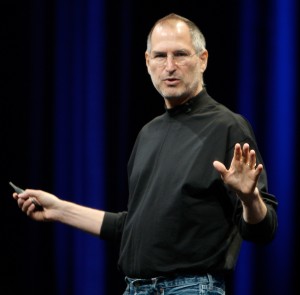
"Jobs was being Jobs: He was telling the truth, he was simplifying the truth, he was exaggerating the truth, he was leaving part of the truth out." (Image by acaben.)
Tom Junod’s 2008 profile about Steve Jobs in Esquire becomes an even better read now for very unfortunate reasons. (Thanks Longform.) The article’s opening:
“One day, Steve Jobs is going to die.
First, he is mortal. Second, the odds against him are not only actuarial — the inevitable odds we all face — they are clinical. Four years ago, he announced in a memo to his employees that he had undergone surgery, that the surgery was for the removal of a malignant tumor, that the tumor was on his pancreas, and that the surgery was, as he put it, successful. An exceptional man who specializes in exceptionalizing himself — he has been an economic force for thirty years, and it’s still hard to put him in a category, or even to say exactly what he does — he responded to his disease by exceptionalizing it as well. He was at pains to say that the pancreatic cancer he had was not that kind of pancreatic cancer — not the kind that kills you, without much room for exception, in six months or so — but rather ‘a very rare form of pancreatic cancer… which represents about 1 percent of the total cases…each year, and can be cured by surgical removal.’ Even in extremis, Jobs was being Jobs: He was telling the truth, he was simplifying the truth, he was exaggerating the truth, he was leaving part of the truth out. It is true that his cancer, originating not in the ductwork of the pancreas but rather in the islets of Langerhans, is slow growing and, in the words of one expert, can be addressed ‘with curative intent’; it is also true that even after surgery, the average patient lives about five years.”
Tags: Steve Jobs, Tom Junod
Steve Jobs shared his thoughts about what makes an entrepreneur successful in 1995. Even someone as brilliant as Jobs could have washed out without incredible diligence, but the creative brain he was born with is still far rarer than a great work ethic. (Thanks Newmark’s Door.) An excerpt:
“I’m convinced that about half of what separates the successful entrepreneurs from the non-successful ones is pure perseverance. It is so hard. You put so much of your life into this thing.
There are such rough moments in time that I think most people give up. I don’t blame them. Its really tough and it consumes your life. If you’ve got a family and you’re in the early days of a company, I can’t imagine how one could do it. It’s pretty much an eighteen-hour day job, seven days a week, for a while.”
Tags: Steve Jobs
In a 1993 Wired interview conducted by Gary Wolf, Steve Jobs discussed the intersection of technology and education. I think what he said then about education in America is just about as true now, which is sad because it speaks to how little progress we’ve made. An excerpt:
“Wired: Could technology help by improving education?
Steve Jobs: I used to think that technology could help education. I’ve probably spearheaded giving away more computer equipment to schools than anybody else on the planet. But I’ve had to come to the inevitable conclusion that the problem is not one that technology can hope to solve. What’s wrong with education cannot be fixed with technology. No amount of technology will make a dent.
It’s a political problem. The problems are sociopolitical. The problems are unions. You plot the growth of the NEA [National Education Association] and the dropping of SAT scores, and they’re inversely proportional. The problems are unions in the schools. The problem is bureaucracy. I’m one of these people who believes the best thing we could ever do is go to the full voucher system.
I have a 17-year-old daughter who went to a private school for a few years before high school. This private school is the best school I’ve seen in my life. It was judged one of the 100 best schools in America. It was phenomenal. The tuition was $5,500 a year, which is a lot of money for most parents. But the teachers were paid less than public school teachers – so it’s not about money at the teacher level. I asked the state treasurer that year what California pays on average to send kids to school, and I believe it was $4,400. While there are not many parents who could come up with $5,500 a year, there are many who could come up with $1,000 a year.
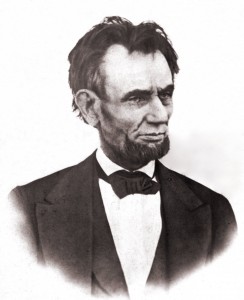
“Lincoln did not have a Web site at the log cabin where his parents home-schooled him, and he turned out pretty interesting.” (Image by Henry F. Warren.)
If we gave vouchers to parents for $4,400 a year, schools would be starting right and left. People would get out of college and say, ‘Let’s start a school.’ You could have a track at Stanford within the MBA program on how to be the businessperson of a school. And that MBA would get together with somebody else, and they’d start schools. And you’d have these young, idealistic people starting schools, working for pennies.
They’d do it because they’d be able to set the curriculum. When you have kids you think, What exactly do I want them to learn? Most of the stuff they study in school is completely useless. But some incredibly valuable things you don’t learn until you’re older – yet you could learn them when you’re younger. And you start to think, What would I do if I set a curriculum for a school?
God, how exciting that could be! But you can’t do it today. You’d be crazy to work in a school today. You don’t get to do what you want. You don’t get to pick your books, your curriculum. You get to teach one narrow specialization. Who would ever want to do that?
These are the solutions to our problems in education. Unfortunately, technology isn’t it. You’re not going to solve the problems by putting all knowledge onto CD-ROMs. We can put a Web site in every school – none of this is bad. It’s bad only if it lulls us into thinking we’re doing something to solve the problem with education.
Lincoln did not have a Web site at the log cabin where his parents home-schooled him, and he turned out pretty interesting. Historical precedent shows that we can turn out amazing human beings without technology. Precedent also shows that we can turn out very uninteresting human beings with technology.
It’s not as simple as you think when you’re in your 20s – that technology’s going to change the world. In some ways it will, in some ways it won’t.”
Tags: Abraham Lincoln, Gary Wolf, Steve Jobs
The excellent writer Luc Sante has an interesting article, “The Book Collection That Devoured My Life,” in the Wall Street Journal, about his compulsive book-collecting. Sante isn’t a bibliophile with a yen for first editions; he’s just a guy who loves the printed word and can’t keep his hands off of anything with two covers, even if it’s a volume he’s unlikely to read. Sante also comments on the digitization of books and the ascension of e-readers. An excerpt:
“These days it may appear that books, per se, are doomed. The electronic readers are ever lighter, smaller, and more sophisticated. Google is undertaking to scan and digitize every book in the world — not without some resistance. Steve Jobs was quoted as saying that even the reading devices are pointless, since according to him nobody reads anymore, at least not in the sense of sequentially taking in long and complex works. I have nothing against the readers, and may find myself buying one eventually — they’d come in very handy on trips, the way the iPod does. I’m all in favor of the comprehensive digitizing of the world’s books, since that would very much ease small points of research (and I’m not worried about losing control of my copyrights, since it’s unlikely many people would read entire books online that way). As far as the decline of reading goes, I am nervous, but also believe that matters of taste and inclination do swing around on long orbits.
But I would very much miss books as material objects were they to disappear. The tactility of books assists my memory, for one thing. I can’t remember the quote I’m searching for, or maybe even the title of the work that contains it, but I can remember that the book is green, that the margins are unusually wide, and that the quote lies two-thirds of the way down a right-hand page. If books all appear as nearly identical digital readouts, my memory will be impoverished. And packaging is of huge importance, too–the books I read because I liked their covers usually did not disappoint. In the world of books, all is contingency and serendipity. Books are much more than container vessels for ideas. They are very nearly living things, or at least are more than the sum of their parts.”
Tags: Luc Sante, Steve Jobs
The Beatles and Steve Jobs famously feuded over the Apple name, and the Fab Four even had an Apple store–the Apple Boutique–while Jobs was still in grade school. British Pathé was on hand for the groovy opening on Baker Street in London. George and John dropped by to mug for cameras and greet shoppers, who were adorned in everything from furs to monocles. Psychedelic fashions and inflatable furniture were for sale, and writer Kenneth Tynan was among the notables to show up. Watch it here.
More Featured Videos:
- “Terminal Bar,” erstwhile NYC dive. (2003)
- Bruce Lee playing ping-pong with nunchucks.
- Four-minute Miranda July film.
- Bulldog watching Family Guy.
- Bay Area self-help video.
- The most horrifying PSA ever.
- Iranian guy washes lion on city sidewalk.
- A 14-year-old kid interviews John Lennon in 1969.
- Synchronized fake slow motion.
- Dog confused by escalator.
- Joseph Siegenthaler’s “Busta LeGros” (2004)
- Drug-dealing parrot arrested.
- Newton, the household robot. (1989)
- Japanese binocular soccer.
- Henry Miller has dinner. (1979)
- Guy in dog make-up sings about Jesus.
- Bruce Lee’s Adventures in Oakland.
- Color film footage from 1922.
- Ryan smack talks your significant other.
- Ryan smack talks the funny way you walk.
- Cruise ship interior during storm.
- Nick Gomez, aspiring comedian.
- Karate keyboard man.
- Bruce Lee screen test. (1964)
- Jaw-dropping Glamour Boyz music video from the ’80s.
- Steven Lee really likes guns.
- Rejuvenique Beauty Mask infomercial.
- Kermit the Frog sings LCD Soundsystem.
- Freedomland Amusement Park in the Bronx. (1963)
- George Bernard Shaw in Miami in 1936,
- Peter Lemongello sings in 1976.
- Teaching English swear words.
- Breakdancing in NYC in 1898.
- Polanski weds Tate in London. (1968)
- Sir Arthur Conan Doyle interview.
- Handsome guy mask.
- Mean jerks mock girls.
- Cringe-worthy 1978 telethon performance.
- School for aspiring beatniks. (1961)
- Phil Levine has been collecting cool crap for 52 years.
- Tiny Tim sings about the apocalypse to small children.
- Patti Smith sings Debby Boone on a children’s show in 1979.
- Ridiculously large vending machine in France.
- Ricky Gervais hassles Elmo.
Tags: George Harruson, John Lennon, Kenneth Tynan, Steve Jobs, The Beatles
It’s tough to say how Apple Computers co-founder Ronald Wayne would have spent $22 billion dollars, and we’ll never know for sure. Wayne was the minority partner to Steve Jobs and Steve Wozniak at the formation of Apple in 1976, and his ten-percent stake would be worth an insane fortune if he had held on to it. But Wayne, who had previously suffered through painful business failures, had misgivings about the wildly talented Jobs and Woz, so he sold his stake back to them after just 12 days.
Bruce Newman of the San Jose Mercury News caught up with Wayne in Pahrump, Nevada, recently to write the piece “Apple’s Lost Founder: Jobs, Woz and Wayne,” and asked him about what might have been. All these years later, he seems more baffled than bitter regarding his fate. An excerpt:
“It’s usually past midnight when Ron Wayne, co-founder of Apple–colossus of the tech world, and Silicon Valley’s most adored franchise–leaves his home here and heads into town. Averting his eyes from a boneyard of abandoned mobile homes, he drives past Terrible’s Lakeside Casino & RV Park, then makes a left at the massage parlor built in the shape of a castle.
When he arrives at that night’s casino of choice, Wayne makes a beeline for the penny slot machines. If it’s the middle of the month and he has just cashed his Social Security check, he will keep battling the one-armed bandits until 2 a.m. Wayne is waiting to hit the jackpot, and he is long overdue.
If Ron Wayne, now 76, weren’t one of the most luckless men in the history of Silicon Valley, it wouldn’t have turned out like this.
He was present at the birth of cool on April Fool’s Day, 1976: Co-founder—along with Steve Jobs and Steve Wozniak—of the Apple Computer Inc., Wayne designed the company’s original logo, wrote the manual for the Apple I computer, and drafted the fledgling company’s partnership agreement.
That agreement gave him a 10 percent ownership stake in Apple, a position that would be worth about $22 billion today if Wayne had held onto it.
But he didn’t.”
Tags: Ronald Wayne, Steve Jobs, Steve Wozniak

